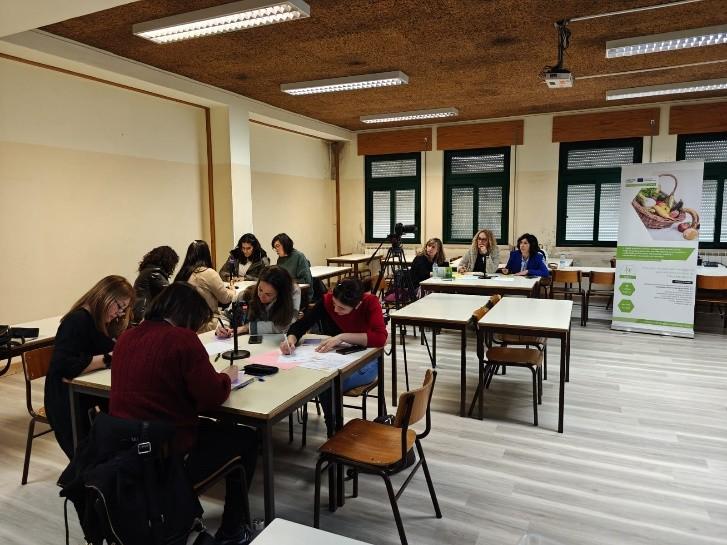Food Design Thinking Workshop in Alto Minho, Portugal
On March 19, a school in the Municipality of Monção in Alto Minho, welcomed a diverse group of stakeholders for an engaging and interactive Food Design Thinking workshop, held under the framework of the CIBUS project - an initiative dedicated to cutting food loss and waste across Europe.
The event held by CIM Alto Minho brought together thirteen participants, including municipal technicians from the Monção City Council, nutritionists from the Alto Minho’s Local Health Unit, teachers, school directors, cafeteria staff, and representatives from the parents' association. This diverse group collaborated to address one of the pressing challenges faced by Portuguese schools: food waste in school canteens.
The session introduced the Food Design Thinking methodology - a human-centered approach that fosters empathy, co-creation, and practical, context-based solutions. Participants explored key statistics and challenges related to food waste in schools, where estimates indicate that up to 41% of served meals go uneaten, leading to significant environmental, economic, and social impacts.
Through engaging activities such as brainwriting, stakeholder mapping, and idea prototyping, participants worked collaboratively to answer the crucial question: "How can we transform the school dining experience to reduce food waste and encourage sustainable eating habits among students?"
The workshop reinforced the CIBUS project's commitment to involving school communities in reshaping food systems and achieving the United Nations Sustainable Development Goals (SDGs), particularly those related to responsible consumption, quality education, and climate action.
By fostering innovation and collaboration, this initiative marks an important step toward reducing food waste in schools and promoting more sustainable food practices for future generations.

